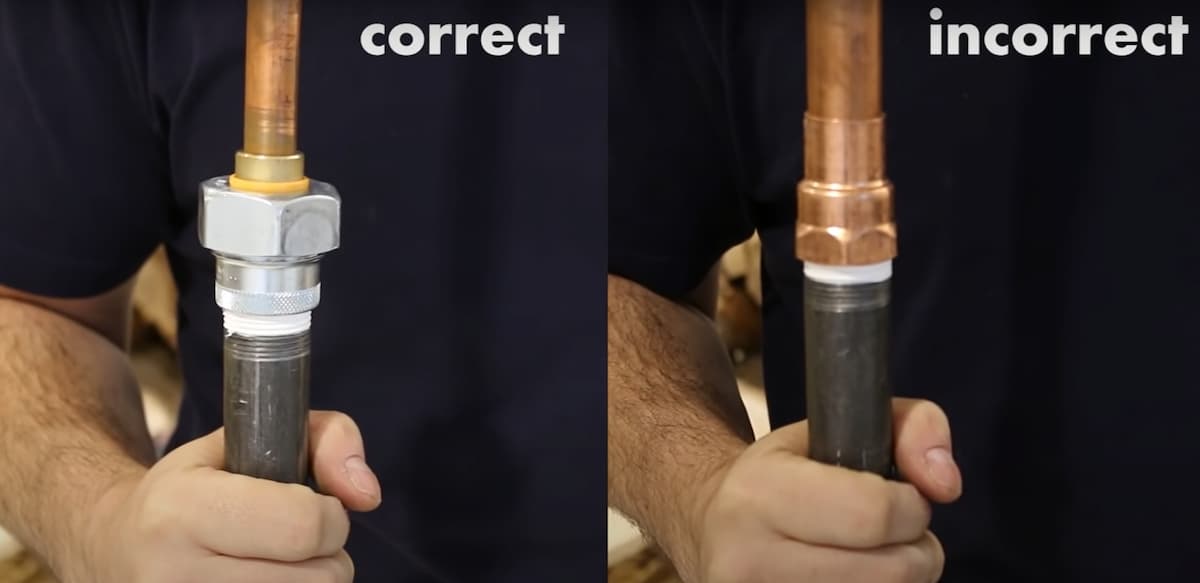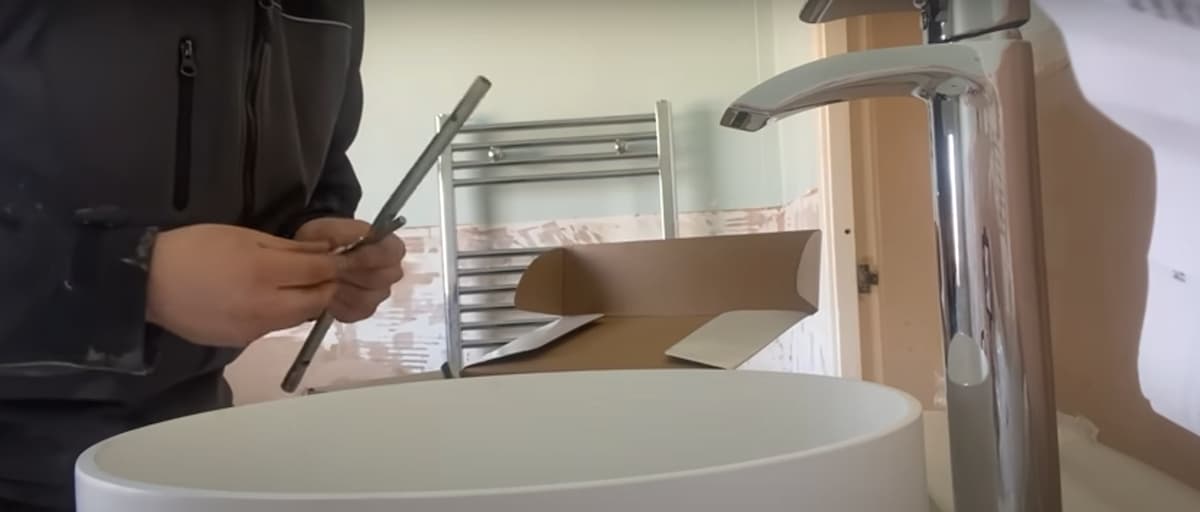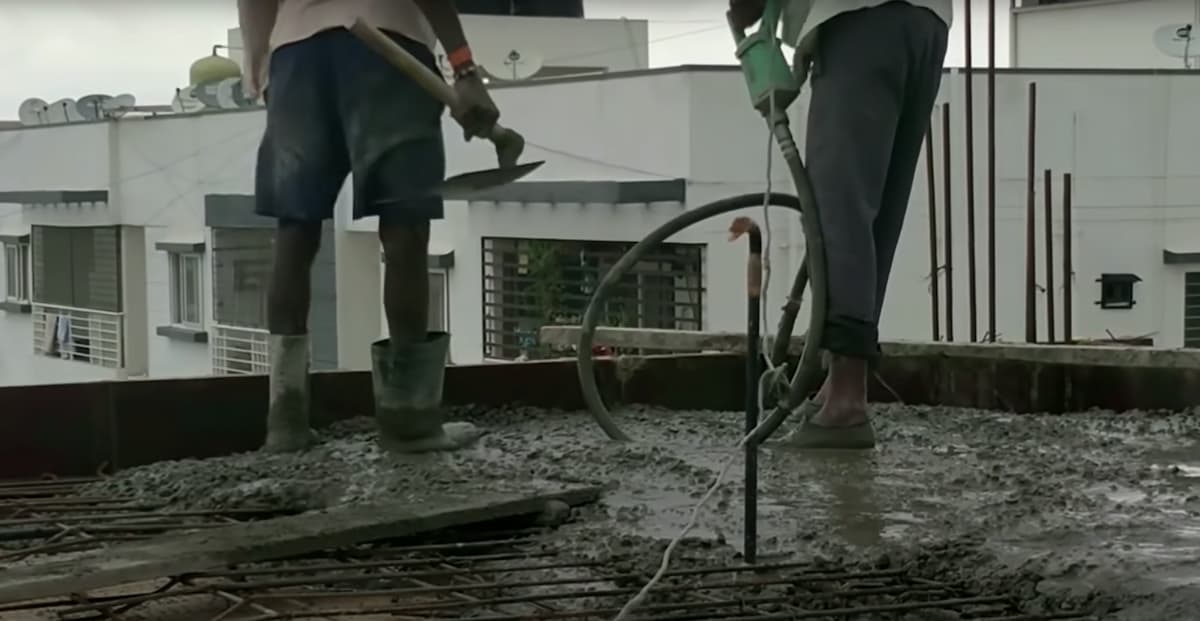
A solar hot water system is a device that uses the sun’s energy to heat up water. It is created by solar cells that are installed into the device in order to transfer the sun’s rays to heat up and provide hot water for showers, dishwashing, clothes washing, or hot tap water.
Solar cells are composed of semiconductors such as silicon, that are fabricated into wafers. Singles cells are then joined together in panels that generate electricity when they convert solar energy into direct electrical current.
The process begins with sunlight being absorbed by the panel’s surface area- meanwhile, each individual cell has a maximum voltage rating- once this voltage is reached, electrons form and start moving away from the surface of each cell. This causes a current of electrons to flow into the first pair of connected wires, which create an electrical circuit that connects all the cells in the panel
Solar panels are composed of multiple semiconductor materials that collect solar energy from the sun and transform it into electrical energy. The efficiency levels involved in this process differ depending on what materials manufacturers use- this also determines how much of a price drop there is on different styles and makes of panels.
Solar water heater prices can vary greatly due to various factors such as brand, quality, size, shape, surface area etc. A good rule-of-thumb is that more expensive systems have a higher efficiency level and therefore greater cost than other less efficient models; similar with larger capacity units compared to smaller models.
If you are installing a large or commercial solar system then it is wise to get an advanced solar weather detector system before you install your solar panels to understand what the potential capacity is of the particular solar system
Highly efficient solar water heaters may cost up to $5,000 while others that are made of lower quality material with a lower efficiency rating, can cost as little as $1,500. If you want a higher quality unit then expect to pay more. On the other hand, if you only need something basic then the price will be much less. Larger capacity units also tend to have a much higher price tag than their smaller counterparts.
Depending on your needs and budget, there is an option out there for everyone. To make things easier, we’ve created this list to help in selecting what might suit your situation best:
Budget for Solar hot water systems
Solar water heaters can start at $500 for smaller units to $5,000+ for large capacity systems and they can be installed in gasfitters.
Solar Hot Water System price per Watt
This will give you an idea of how much electricity a certain system is capable of generating; the higher the price per watt, the more energy it produces and therefore costs more.
Solar Hot Water Systems size
Keep in mind that bigger systems are generally more expensive than smaller ones. You should take into consideration your daily usage when deciding what size you want- this is to avoid purchasing a unit that isn’t sufficient enough to cover your needs throughout the year. It also makes sense financially to go with a larger sized unit because fewer panels mean less money spent on installation since they can be laid out in a larger area
Determine if you want a solar hot water system as your main water heating source
There are two types of solar water heaters: active and passive. An active unit requires pumps, controllers, tanks etc while passive units do not require any special equipment apart from panels.
Passive heaters are generally less expensive but they also tend to produce less heat with a slightly lower efficiency rating on average than active systems do. It’s better to address these factors before purchasing anything because once the system is already installed then there won’t be any way to change or fix something that isn’t working like you anticipated it would
Costs of Solar Hot Water Systems in Australia
Australia is fast becoming one of the biggest solar water heater markets in the world. The main reason behind this popularity is simple economics, with a high price tag and an unstable economy, it just makes sense to use alternative energy sources, especially with the price of solar panels and photovoltaic technology as a whole decreasing exponentially since the beginning new millennium.
When choosing between an active and passive solar hot water system there are many different things you might want to consider- such as installation costs, operating costs etc before making a purchase decision. If your financial situation isn’t too good right now then taking these factors into consideration will help you make better investment decisions based on your individual circumstances- especially if you require assistance with financing
Installation Costs for Solar Hot Water Systems
This will mainly depend on what system you select and where you live. If you purchase a passive unit then you’ll only have to pay for the panels that are used to heat the water as well as any electrical wiring that might be required. On the other hand, active units will require extra equipment and all of those components come at an extra cost
It’s also important to know if your state or local government offers any assistance with installing solar hot water systems because some do offer incentives for doing so. These can cover a portion or even the entire installation cost which is a really big deal especially in places where electricity bills aren’t cheap!
If there isn’t any state/local help available then it makes more sense financially to install an active system because they generally make up for the extra costs associated with purchase and installation in a shorter period of time compared to passive systems due to their higher efficiency rating
If your state doesn’t offer any incentive programs then you might have better success looking at government programs that can help you purchase solar hot water system components. This is because it often makes more sense financially to go with an active unit if you are on a tight budget since they generally make up for all the additional costs over a shorter period of time than passive units do
Operating Costs for Solar Hot Water Systems
When determining what type of solar hot water system will be best suited for your lifestyle, one important factor you should take into consideration is operating costs as well. You might be able to save money in the long run by opting for an active system that requires the use of pumps and controllers, but initially, you might have to save up in order to pay for them as well
If you select a passive unit then there aren’t any additional operating costs aside from electrical costs (if applicable)- which is generally your biggest expense with using solar water heating systems unless you’re on a tight budget. This means that if you don’t want to worry about regular maintenance or even replacing certain parts then this selection will be perfect
Noise Factor for Solar Hot Water Systems
One thing that may not be worth sacrificing is comfort and noise levels. Most models of active units tend to produce some degree of noise when they are actively heating water in which case it might just make more sense to stick with a passive unit.
How does solar hot water work?
Solar water heating systems rely upon the energy from the sun to provide hot water for your home. The system consists of three main components – an absorber, a storage tank and an operating system.
The simplest form is just a tank that collects solar-heated fluid in one area and empties it into another through a pump. However, more complex units have controls to maximize pre-heating efficiency or steam production.
Water is drawn in from the cold water supply, heated by passing it through tubes containing some type of vaporized fluid (liquid absorber), then recirculated back into the distribution network with improved temperature (recycle rate).
Good solar thermal collectors provide enough heat to heat a volume of water that is much bigger than the area of the collection surface itself. The only limit on how big your tank can be is how fast you will want to take hot showers and run your dishwater, so it’s good to plan for that worst-case scenario.
Good quality solar thermal collectors have an efficiency rating that exceeds 90% in many cases. This means that nearly all of the energy from the sun striking them will be transferred into heating water (or space) rather than being lost as excess heat or infrared radiation to the atmosphere instead. That’s one reason why they look like aluminium foil enclosures covered by glass or plastic glazing, which produces both radiant and conductive heat transfer rather than convective (air) heating.
If you ever look at the front of a typical solar water heater, you may notice that it is covered with aluminium foil-like material. The glass emits infrared radiation which is absorbed by the shiny metal and used to heat the passing water or air.
The most common types of materials found in solar collectors are copper alloys, stainless steel and aluminium alloys; while porcelain-coated steel, plastic and even glass can be heated directly without adding any additional fluid or vaporizing fluids between them and the pipe carrying hot water around your home. However, they tend to have lower efficiency ratings compared to other forms of solar thermal collectors because their surface area isn’t as big nor do they work as well on cloudy days.
The most common ways of heating the fluid inside solar collectors include using propane, natural gas or oil which produce greenhouse gases. The leaks and emissions from these will be harmful to our environment if they are not effectively controlled or properly used for their intended purpose. Using them is actually a good way of reducing your dependence on foreign energy sources but only as long as you’re careful with how much power and fuel you use at home- particularly when using a passive system
Is a Solar hot water system cheaper?
A solar hot water system is often cheaper than gas or electricity because it doesn’t use any fossil fuels to produce heat. This means you don’t have to pay for the installation of expensive piping and wiring or a utility hook-up.
It’s also possible to install a solar hot water system in an existing house with no plumbing or electricity, so long as there’s a way for water to be collected from the roof into a storage tank. If your home has been hermetically sealed tightly, then you’ll need either a draining system and/or external containers (such as plastic drums) to store the hot water during periods of low solar output.
Heat pumps are an alternative option that may be considered as well. A heat pump is a more expensive upfront, but you save money on electricity and gas running costs over time. That’s because they require less energy to do the same amount of work as a regular boiler system or electric storage heater.
The main disadvantage with solar hot water systems is that they can’t be used in cloudy weather or at night, so you’ll still rely on your grid-powered heating system for the times when there isn’t enough sunlight. There are also other factors such as insulation levels in your home that will affect how quickly they can produce hot water during sunny days
However, most people who get a heat pump installed come back later to purchase another one for their swimming pool or use it as supplementary heat for their central heating systems.
But just because solar water heating systems are inherently more environmentally friendly and cheaper to run, doesn’t mean they’re necessarily better for you. They may not be as efficient when it comes to producing hot water as electric storage heaters or boilers, but they come in handy in the summertime (for cooling your home) when you don’t need them as much.
Cost-effectiveness of a Solar How Water System
The last thing I wanted to discuss this subject is the cost-effectiveness of these solar hot water systems over time. Just how long do these things take before they pay for themselves? The short answer is: it depends on how long you plan on staying at your current location and how sunny it is there! But usually speaking, if your location receives an average of about 5 hours of sun a day, then you should expect to see an ROI (return on investment) in about 6 years.
The solar hot water system will also lose efficiency over time as the pipes and collectors get covered in dirt and moss or if they simply degrade with age. Replacement parts can be purchased but they are more expensive than the original pieces. If you want to increase your ROI from a solar heating system, make sure to check out these tips so that it’ll last longer:
Place transparent covers on the roof’s glass panels. They might look ugly at first, but they prevent algae growth and other forms of organic buildup which reduce heat absorption rates by 23 per cent. There are even some covers made from high-tech transparent plastic that allows the sun’s rays to penetrate yet are almost invisible!
Clean your solar heating system at least once a year. This will help prevent dirt and algae from building up on the glass panels and reduce heat loss rates by 15 per cent. As an added benefit, you’ll also be maximizing energy absorption during your household’s hot water demands in summertime (if that is when you use most of it).
During winter months or times of low demand, switch off the pump connected to your solar loop. Doing so will allow any trapped water within the pipes to either evaporate or freeze. This prevents damage caused by burst pipes from accumulated snowfall and ice buildup inside the pipes.
Are Heat Pump Systems required for Solar Hot Water?
Heat pump systems are an alternative option that may be considered as well. A heat pump is a more expensive upfront, but you save money on electricity and gas running costs over time. That’s because they require less energy to do the same amount of work as a regular boiler system or electric hot water systems storage heater.
The main disadvantage with a solar hot water heater is that they can’t be used in cloudy weather or at night, so you’ll still rely on your grid-powered heating system for the times when there isn’t enough sunlight. There are also other factors such as insulation levels in your home that will affect how quickly they can produce hot water during sunny days
However, most people who get a heat pump installed come back later to purchase another one for their swimming pool or use it as supplementary heat for their central heating systems.
Gas water Heater vs Solar Panel Hot Water System
The gas water heater is less expensive and consumes energy to produce hot water. The solar panels heat the water with heat from the sun for free. If the electricity goes out, you will still have gas heating.
Is the Hot Water Solar System powered by Solar Panels?
The hot water solar system is powered by solar panels. The system absorbs heat from the sun to provide for the heating of water. The absorption of this heat from the sun is free, as opposed to using gas or electricity which cost money. If the power goes out, you will still have your gas boiler heating up your water.
What are Solar Hot Water Split Systems?
A Split System Solar Hot Water System is a “hybrid” hot water heating system, it is activated by the sun, but powered and assisted by a heat pump.





